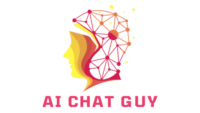Types of Jobs That Will be Cancelled by AI
Artificial Intelligence (AI) has brought about significant changes in the workplace, and its impact continues to grow. AI technology is transforming various industries, leading to changes in job roles and the skills required for those roles. As a professional in today’s job market, it is essential to understand how AI is affecting different professions and what this means for your career.
In this article, we will explore the professions most affected by AI and its impact on job roles across various industries. We will also discuss the future of work in relation to AI technology advancements and the resulting occupational changes. Additionally, we will delve into the disruption caused by AI in various professions, highlighting industries and job roles that have been significantly influenced by AI.
We will also explore the impact of AI on different job sectors, discussing the specific professions that have been heavily impacted and the changes brought about by AI technology. Finally, we will examine the implications of AI on career fields, discussing potential effects on job roles and skills required and how professionals can adapt to the changing landscape.

Key Takeaways:
- AI technology is transforming various industries, leading to changes in job roles and the skills required for those roles.
- It is essential to understand how AI is affecting different professions and what this means for your career.
- Professions most affected by AI include those in healthcare, finance, transportation, and manufacturing, among others.
The Future of Work and AI
As AI technology continues to advance, the future of work is set to undergo significant changes. Occupations that rely heavily on repetitive and predictable tasks are most at risk of being impacted by AI. These include data entry work, production line jobs, and administrative roles.
However, it’s not just low-level jobs that are susceptible to AI disruption. Even highly skilled and technical roles, such as financial analysis and medical diagnosis, have the potential to be impacted by AI.
As AI becomes more sophisticated, it is likely that the nature of work will shift, with a greater emphasis on creative and strategic tasks that require human intuition and problem-solving abilities. This means that individuals will need to focus on developing skills such as critical thinking, creativity, and emotional intelligence to remain competitive in the job market.
The Impact of AI Technology Advancements
The rapid advancements in AI technology have had a significant impact on job roles across a range of industries. For example, the introduction of chatbots has revolutionized customer service, allowing businesses to provide 24/7 support without the need for human operators. Similarly, AI-powered software can analyze vast quantities of data in a fraction of the time it would take for a human to do so, freeing up valuable time for professionals.
However, the increased efficiency and productivity brought about by AI technology comes at a cost. Many individuals are concerned that their jobs will be automated, leaving them without work. While it is true that some jobs will be made redundant by AI, there are also many opportunities for new roles to be created. Individuals who are willing to adapt and learn new skills will be well-positioned to succeed in the future of work.
Occupational Changes Brought About by AI
The introduction of AI technology has already brought about significant occupational changes. For example, many industries are now adopting a hybrid approach that combines human workers with AI-powered technology. This means that individuals will need to work alongside machines and learn how to collaborate effectively with them.
Another notable change is that organizations are placing greater emphasis on data literacy, with individuals needing to understand how to collect, analyze, and interpret data effectively. This requires skills such as statistical analysis, data visualization, and machine learning.
In conclusion, the future of work is set to undergo significant changes as AI technology continues to advance. While some roles will be made redundant, new opportunities will also be created. Individuals who are willing to learn new skills and adapt to the changing landscape will be well-positioned to succeed.
AI Disruption in Professions
Artificial intelligence (AI) is rapidly disrupting various professions across industries. Some of the professions most affected by this disruption are those that require manual labor, data analysis, or repetitive tasks, such as manufacturing, customer service, and finance.
The impact of AI on these professions is twofold. On one hand, it can increase efficiency and productivity, improve accuracy, and reduce costs. On the other hand, it can also lead to job losses and shift the demand for new skills and competencies.
| Profession | Industry | AI Influence |
|---|---|---|
| Customer service representative | Service industry | Chatbots and virtual assistants can handle basic inquiries and complaints, reducing the need for humans. |
| Financial analyst | Finance | AI can analyze large volumes of financial data, provide predictions and optimization recommendations, and automate trading. |
| Manufacturing worker | Manufacturing | Robots and automation can perform repetitive or dangerous tasks, such as assembly lines and quality control, with higher accuracy and speed. |
However, not all professions are equally impacted by AI disruption. Some professions, such as healthcare and education, require more complex decision-making and human interaction, making it less likely to be heavily influenced by AI technology.
Overall, while AI can enhance productivity and efficiency, its impact on professions and industries should be taken into account, and professionals should adapt and acquire new skills to stay competitive in the job market.
Exploring the Impact of AI on Job Sectors
AI technology has impacted various job sectors, leading to significant changes in the way work is performed. Here, we will explore the professions that have been heavily impacted by AI and the resulting changes.
| Job Sector | Professions Impacted | Changes Brought About by AI |
|---|---|---|
| Healthcare | Medical researchers, radiologists, and surgeons | AI technology has been used to analyze and diagnose medical images and assist in surgical procedures, resulting in better accuracy and efficiency. |
| Finance | Financial analysts, traders, and advisors | AI technology has been used to analyze financial data and assist with investment decision-making, resulting in improved accuracy and speed. |
| Retail | Sales representatives, customer service representatives | AI technology has been used to provide personalized recommendations and improve customer service through chatbots and virtual assistants. |
Other professions that have been significantly impacted by AI include transportation and logistics, manufacturing, and education. In these sectors, AI technology has led to the automation of certain tasks, resulting in increased efficiency and productivity.
While the impact of AI on job sectors has led to certain professions becoming obsolete, it has also created new opportunities for professionals to specialize in areas related to AI and its implementation.

Implications of AI on Career Fields
With the rapid advancement of AI technology, many industries are seeing significant changes in the job roles and skills required. It is important to understand the implications of AI on your career field and how you can adapt to these changes.
One of the key implications of AI is the automation of repetitive and routine tasks. This means that some job roles may become redundant or require new skills to stay relevant. For example, administrative assistants may find their tasks automated by AI assistants, requiring them to develop new skills such as data analysis or project management.
Another implication is the increased need for workers with technical and analytical skills to develop and maintain AI systems. This means that professionals in fields such as computer science and data analysis will be in high demand, while those without these skills may find it difficult to compete in the job market.
However, it is important to note that AI technology also creates new opportunities in many fields. For instance, AI can be used to analyze data in healthcare, improving patient outcomes and allowing for more precise diagnostics.
To adapt to the changing job market, professionals must be willing to continuously learn and develop new skills. This may involve pursuing additional education or taking online courses to learn new technical and analytical skills. It is also important to stay up-to-date with the latest technological advancements and understand how they may impact your industry and job role.
Ultimately, it is important to embrace the changes brought about by AI and be proactive in adapting to the evolving job market. By staying informed and continuously developing your skills, you can position yourself for success in an AI-driven world.
AI Technological Advancements and Occupational Changes
As AI technology continues to advance, there is no doubt that it will continue to reshape the landscape of various industries and job roles. The impact of AI on occupational changes is expected to be significant, with many traditional job roles becoming automated or modified to incorporate AI systems.
Automating Repetitive Tasks
One of the primary ways in which AI is impacting occupational changes is by automating repetitive tasks. Many jobs that involve routine tasks that can be easily automated by AI are at risk of being replaced by machines.
For example, AI-powered chatbots are now commonly used in customer service, replacing human operators who used to handle simple queries. In the healthcare industry, surgical robots are now used to conduct complex surgeries with greater accuracy than a human surgeon.
Creating New Job Roles
While AI is expected to automate many jobs, it is also creating new job roles that require specialized skills. For example, AI is creating new roles in software development, data analysis, and cybersecurity.
As AI technology continues to evolve, it is likely to create even more job roles that require specialized skills in areas such as machine learning, natural language processing, and computer vision.
Changing the Nature of Existing Job Roles
AI is also changing the nature of existing job roles, requiring professionals to update their skills and adapt to new working practices. For example, AI is being used to improve decision-making in finance, requiring financial professionals to understand and use AI systems to make data-driven decisions.
Similarly, AI is being used to analyze legal documents and contracts, requiring legal professionals to develop skills in data analysis and machine learning.
Adapting to the Changes
As AI continues to impact occupational changes, it is important for professionals to adapt to the changing landscape. This may involve developing new skills, such as data analysis, machine learning, and natural language processing.
It is also important for professionals to stay up to date with advancements in AI technology, and to be open to new ways of working. Professionals who are able to adapt and develop new skills are likely to be in greater demand in the future job market.
Overall, AI is expected to have a significant impact on occupational changes, with many traditional job roles becoming automated or modified to incorporate AI systems. While this may result in job losses in some areas, it is also creating new job roles and changing the nature of existing job roles, requiring professionals to develop new skills and adapt to new working practices.



